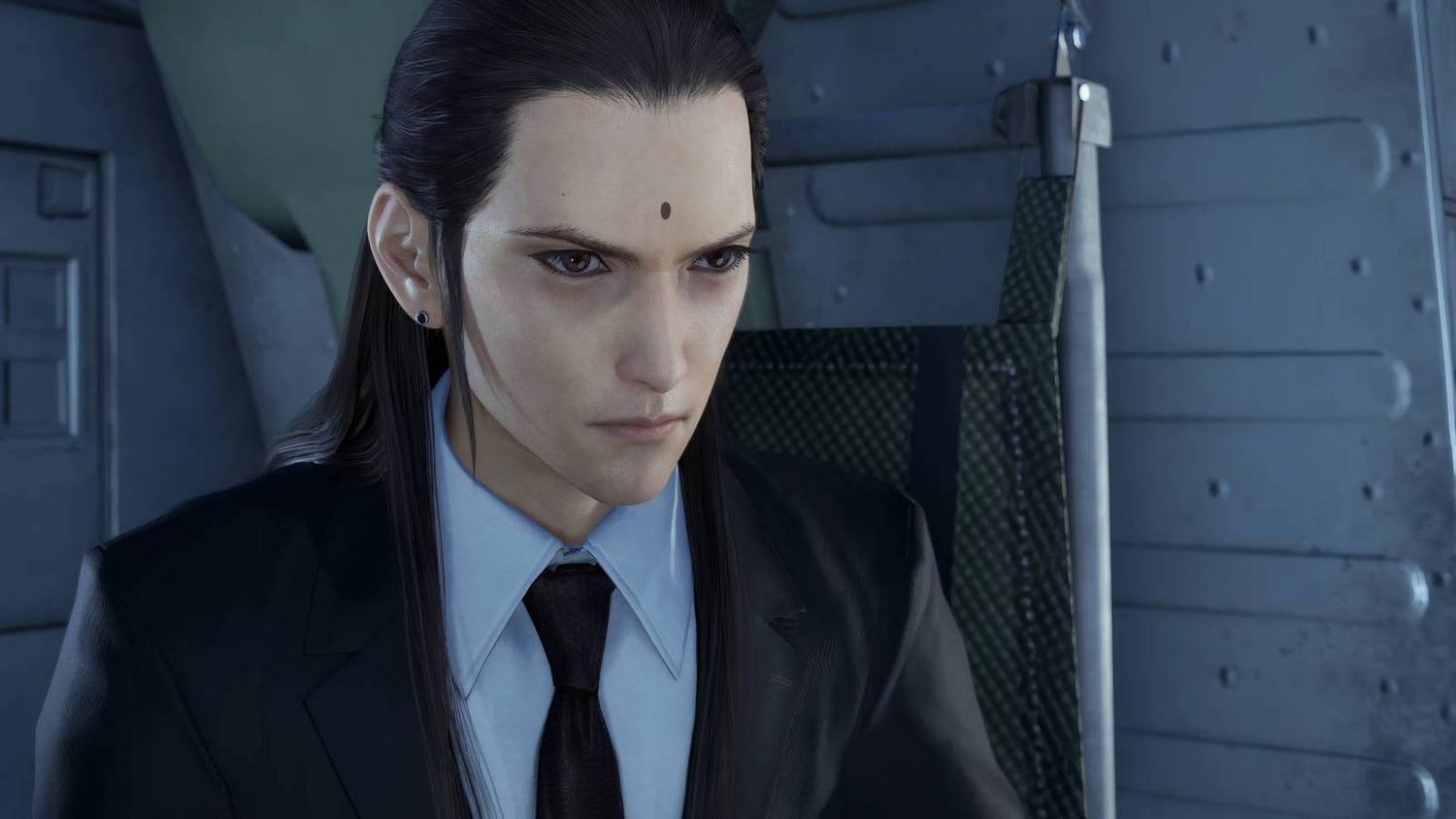Decoding the Crystal: The Essential Final Fantasy Games You Must Play to Understand the Series’ Enduring Legacy
Popular Now
 Rust
Rust
 Fortnite
Fortnite
 PUBG Mobile
PUBG Mobile
 Auto X Drift Racing 3
Auto X Drift Racing 3
 Minecraft
Minecraft
 Among Us
Among Us
 BeamNG.drive
BeamNG.drive
 Stumble Guys
Stumble Guys
 Call of Duty
Call of Duty
 FIFA 23
FIFA 23

The Final Fantasy franchise is a monolithic entity in the world of Japanese Role-Playing Games (JRPGs), celebrated globally for its stunning visuals, emotionally resonant narratives, and perpetually evolving gameplay systems. With over sixteen mainline entries, a sprawling Massively Multiplayer Online Role-Playing Game (MMORPG), and countless spin-offs, navigating the series can be overwhelming for newcomers and a source of perpetual debate for veterans. To truly grasp the essence of what makes a Final Fantasy game—from its narrative themes to its mechanical innovations—a select handful of titles serve as crucial historical and thematic anchors.
This news analysis and retrospective focuses on the essential numbered entries that have defined eras, revolutionized the video game industry, and established the core philosophical pillars of the Final Fantasy universe. Playing these key games will provide a holistic understanding of the series’ journey from 8-bit fantasy to cutting-edge action RPG.
 1. Final Fantasy VI: The Pinnacle of the 2D Golden Era
1. Final Fantasy VI: The Pinnacle of the 2D Golden Era
Released in 1994, Final Fantasy VI (originally Final Fantasy III in North America) is frequently lauded as one of the greatest JRPGs ever created and is the ultimate representation of the series’ 16-bit mastery. To understand the storytelling potential of the franchise, this entry is non-negotiable.
- Thematic Depth: FFVI moves beyond the classic “Warriors of Light” trope, offering a darker, more mature narrative centered on a vast ensemble cast of twelve playable characters. It brilliantly explores themes of industry, magic versus technology, and totalitarianism.
- The Villain Standard: The antagonist, Kefka Palazzo, is widely considered the franchise’s most compelling and genuinely terrifying villain. His nihilistic pursuit of world destruction sets a high benchmark for the characterization of evil in JRPG storytelling.
- Mechanical Foundation: It features the refined Active Time Battle (ATB) system, which blended turn-based strategy with real-time urgency, and the innovative Esper/Magicite system, allowing characters to learn magic and customize stats—a precursor to later complex job systems.
Conclusion: FFVI is essential for grasping the emotional complexity, cinematic scale, and deep character development that is the heart of a great Final Fantasy title. Its influence on subsequent role-playing games is immeasurable.
2. Final Fantasy VII: The 3D Revolution and Global Phenomenon
In 1997, Final Fantasy VII changed everything. It was the series’ leap into 3D graphics, its debut on the Sony PlayStation, and the moment the franchise became a worldwide entertainment brand. Understanding the series’ global impact requires playing this game (and its ongoing Remake/Rebirth projects).
- Cultural Impact: FFVII introduced a unique blend of high fantasy and cyberpunk sci-fi, with themes of environmentalism (eco-terrorism), corporate greed (Shinra), and the nature of memory and identity. Its narrative complexity and stunning CGI cutscenes captivated a new generation of players.
- Cloud Strife and Sephiroth: The protagonist, Cloud Strife, and the iconic villain, Sephiroth, are arguably the most recognizable characters in the history of the genre. Their rivalry is central to the entire Final Fantasy mythos.
- The Materia System: This system offered unparalleled character customization, allowing players to attach orbs to equipment to grant new spells and abilities, making every party member adaptable and strategic. The Materia system is a masterclass in game design flexibility.
Conclusion: FFVII is the cornerstone of the modern Final Fantasy identity, responsible for its mass appeal and the high-production values that define the brand today. Its themes and character arcs are critical for series comprehension.
3. Final Fantasy X: Voice Acting, Linear Narrative, and Emotional Climax
Released in 2001, Final Fantasy X (FFX) was a crucial transition point. It was the first game to feature full voice acting, bringing an entirely new level of immersion and emotional resonance to the narrative. It also marked a strategic shift towards a more linear, story-focused structure.
- Narrative Focus: FFX delivers one of the franchise’s most poignant and emotionally charged stories, exploring heavy themes of organized religion, xenophobia, loss, and self-sacrifice. The love story between Tidus and Yuna is an iconic romance in video games.
- The Sphere Grid: This innovative character progression system allowed for both focused and highly flexible development, giving players full control over how their party members advanced, offering strategic depth to turn-based combat.
- Paradigm Shift in Combat: FFX introduced the Conditional Turn-Based Battle (CTB) system, a purely turn-based, visible timeline system that replaced ATB. This provided players with ample time to strategize, a key differentiator from the series’ earlier frantic pace.
Conclusion: FFX is essential for understanding the series’ successful transition into the fully 3D, voice-acted era, and its capacity for deeply emotional, character-driven narratives, often considered the last of the “classic” formula before the major gameplay overhauls of later titles.
4. Final Fantasy XIV: The Defining Modern Experience and MMORPG Success
While an MMORPG, Final Fantasy XIV (FFXIV) cannot be ignored when discussing the series’ identity. Following a disastrous initial launch, the game’s monumental, critically acclaimed relaunch (A Realm Reborn) and subsequent expansions represent a commitment to quality and storytelling unparalleled in the genre.
- Unmatched Storytelling: FFXIV boasts a vast, compelling, and award-winning narrative that rivals the best single-player entries. It captures the very spirit of Final Fantasy—crystals, ancient civilizations, heroic sacrifice, and a deep, interconnected lore—on a massive scale.
- The Job System’s Evolution: The game features a modern interpretation of the classic Job System, allowing a single character to master every combat class, reflecting the customization and flexibility the series is known for.
- The Live Service Model: Understanding FFXIV is crucial for comprehending the modern gaming landscape’s shift toward the live service model and how the franchise successfully adapted to sustain an active, thriving online community for over a decade—a huge revenue stream for Square Enix.
Conclusion: FFXIV is the definitive modern Final Fantasy experience, showcasing the series’ narrative mastery and mechanical evolution in a continually updated, highly profitable, and globally beloved online format.
5. Final Fantasy XVI: The Action-Focused Future
The 2023 release of Final Fantasy XVI (FFXVI) represents the series’ latest bold evolution. It fully embraces a darker, politically charged high-fantasy setting and features a complete pivot to real-time action combat, shedding nearly all traditional turn-based elements.
- Mature Themes: FFXVI features a mature, Game of Thrones-esque narrative centered on the political struggles of a dying world, the oppression of magical individuals (Bearers), and the catastrophic power of the Eikons (Summons). Its serious, focused tone is a new high water mark for the series.
- Pure Action Combat: Developed by key veterans of the Devil May Cry franchise, the combat is a slick, fast-paced action system. Playing FFXVI shows the series’ willingness to completely reinvent its core mechanics to appeal to a modern, broader audience interested in high-octane action games.
- Cinematic Presentation: The game features jaw-dropping, epic-scale cinematic Eikon battles, demonstrating the absolute peak of modern console game development and presentation.
Conclusion: FFXVI is vital to understanding the current direction of the franchise: prioritizing a mature tone, epic cinematic moments, and accessible, high-skill-ceiling action gameplay.
 Your Essential Final Fantasy Play Order
Your Essential Final Fantasy Play Order
To acquire a comprehensive knowledge of the Final Fantasy legacy, a focused path through these milestones is recommended. This selection covers the thematic depth of the classic era, the revolutionary shift to 3D, the emotional height of voice acting, the success of the modern live service, and the latest action-focused direction.
- Foundation of Narrative: Play Final Fantasy VI (The best classic story, available in the Pixel Remaster).
- The Global Game Changer: Play Final Fantasy VII (The original or the critically acclaimed FFVII Remake trilogy).
- The Voice-Acting Standard: Play Final Fantasy X (The emotional high point of linear JRPGs).
- The Modern Epic: Play Final Fantasy XIV (Jump into the generous free trial to experience the acclaimed MMORPG story).
- The Future of Action: Play Final Fantasy XVI (The newest, most action-oriented mainline entry).
By conquering these five landmark titles, any player will gain a profound and complete understanding of the evolution, ambition, and enduring core philosophy of the Final Fantasy series—a legacy built on constant reinvention and world-class storytelling.
Keywords for High-Value Searches: Final Fantasy best JRPG, FFVII Remake, Final Fantasy XIV MMORPG, high-quality console games, Square Enix stock performance, best RPG games of all time, Final Fantasy XVI action RPG.









